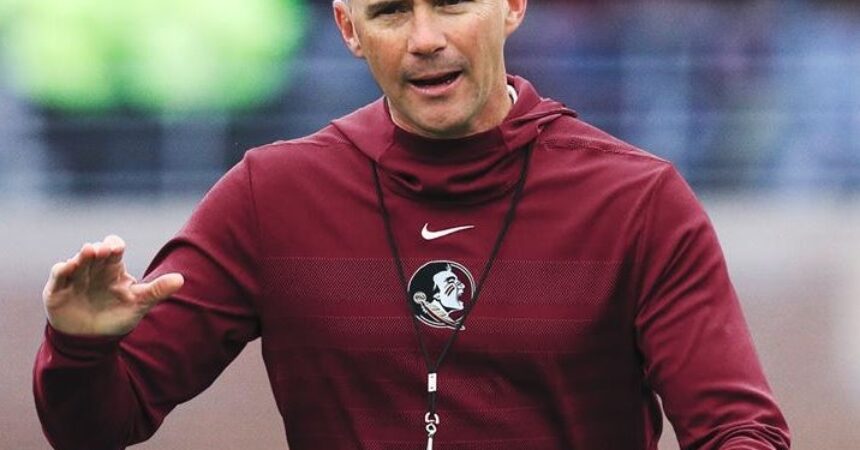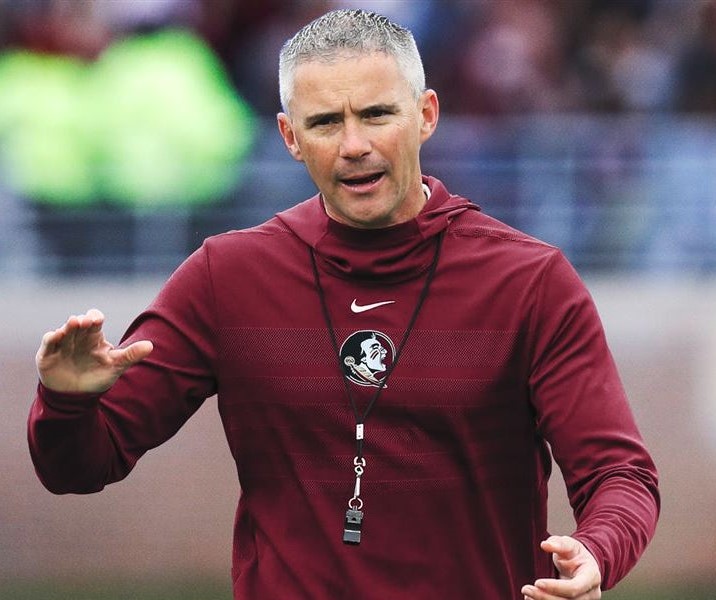
Lawmakers dodge delay on athlete pay

Photo special to the Outlook
By Ryan Dailey
News Service of Florida
With minutes left in the 2021 legislative session, lawmakers reversed course on delaying the implementation of a law allowing student athletes at Florida colleges and universities to profit from their names and images — with a controversial addition.
The last-minute play came together last Friday following a huddle involving a former college athlete-turned-state senator, a former GOP House speaker who’s now the president of Florida State University and the head of the National Collegiate Athletic Association.
Lawmakers last Wednesday tucked into a wide-ranging education bill (SB 1028) a provision that would have pushed back until next year the effective date of a name, image and likeness law signed by Gov. Ron DeSantis last summer.
The education bill also was amended last Wednesday to include a controversial provision that would ban transgender female athletes from participating in girls’ high-school or women’s college sports teams. A Senate stand-alone bill designed to keep transgender female athletes from competing on girls’ or women’s teams failed to make it to the floor for a full vote.
And last Friday, possible fallout from the transgender athlete ban was added to a measure designed to give state colleges and universities more time to prepare for the possible payment of student athletes.
The law permitting athletes to profit, set to take effect in July, is aimed at allowing collegiate athletes to get paid for things such as autographs and be able to monetize social media accounts, such as YouTube.
News of a potential delay to the law prompted reactions from head coaches and athletes at some of Florida’s largest university athletic programs.
“There is no reason to wait to do the right thing. The state of Florida was a leader on NIL and, as other states quickly tried to follow our model, college athletes in Florida have been able to position themselves to be ready to benefit starting July 1, 2021 #KeepTheDate,” FSU Head Coach Mike Norvell tweeted last Thursday, referring to the state’s name, image and likeness law.
Sen. Travis Hutson, who played football and ran track at Lafayette College, last Friday filed an eleventh-hour amendment to a higher-education bill (HB 845) that would keep the effective date of the law to July 1.
Hutson said the move to delay implementation was done to ensure that the NCAA, which hasn’t yet ruled on whether student athletes can profit from their names and images, wouldn’t punish universities and athletes for benefitting from the state law.
“(The NCAA) started the rulemaking process, there was a federal lawsuit and the DOJ (Department of Justice) kind of told them to stop for a second. So that was going on, which sparked us moving the date. Because we didn’t want to get caught in a conundrum where our student athletes start playing, do the name, image and likeness, and all of the sudden the NCAA comes and does sanctions,” Hutson told The News Service of Florida last Friday.
But Hutson said that a phone call with Florida State University President John Thrasher, a former state senator and former House speaker, put in motion an amendment that could keep the state law on track to go into effect this summer.
“President Thrasher arranged a conversation with me and the president of the NCAA, with his chief operating officer on the phone,” Hutson said. “He said their intentions are to fully protect the student athlete in terms of name, image and likeness as best they can.”
With those assurances, “we moved the date back to where it originally was,” Hutson added.
But when the bill was sent back to the House for approval, the House added an amendment that would prohibit state universities from using state funds to join or remain a member of organizations that boycott decisions made by the Legislature, if the boycott results in “a negative fiscal impact to the state.”
Opponents of the amendment argued that the change was an attempt to head off a potential boycott by the NCAA related to the prohibition of transgender female athletes’ participation in collegiate sports.







